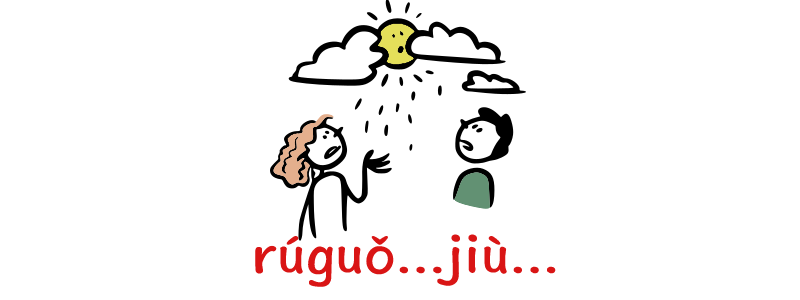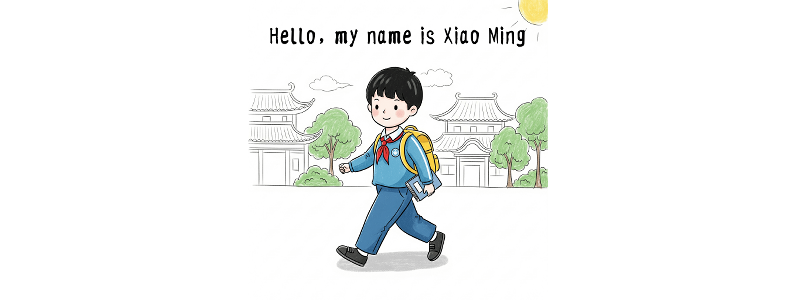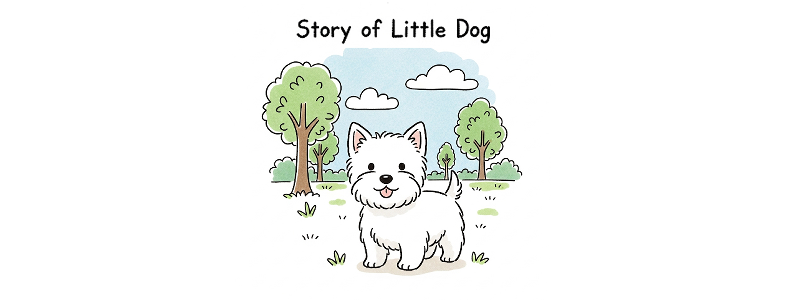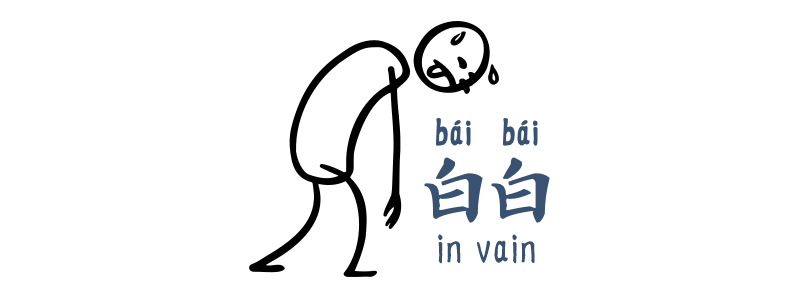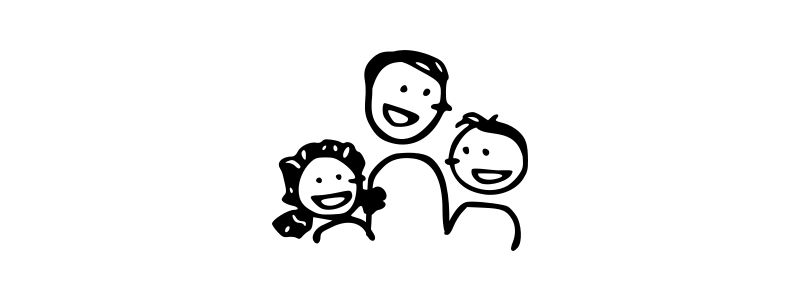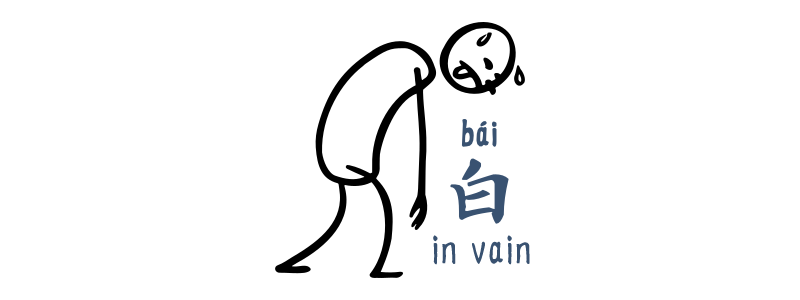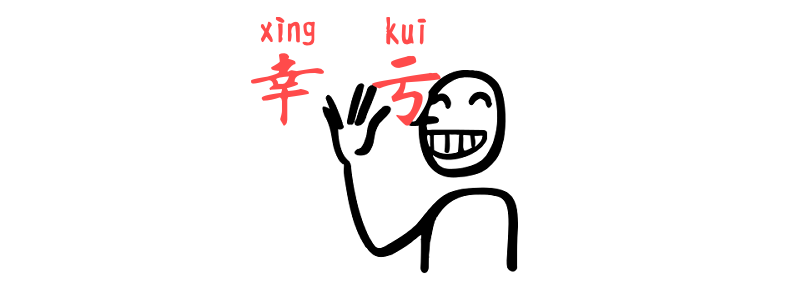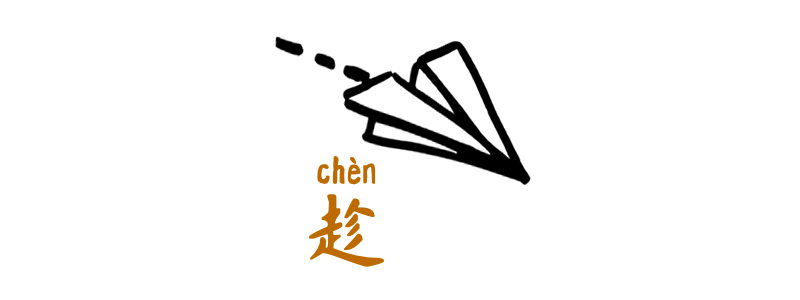Grammar Point:In Chinese grammar, “if…then…” can be expressed using conditional conjunctions 如果 rúguǒ and 要是 yàoshìyàoshi to introduce a condition, followed by a main clause that expresses a result or consequence. Structure 如果 or 要是 + Condition + (就) + Result It’s possible to drop “就 jiù” in sentences, but unlike in English, the “then”…
Author: tiffany
Pinyin Spelling Rules
Hanyu Pinyin is the official romanization system for Mandarin Chinese in mainland China, used to represent the sounds of Chinese characters using the Latin alphabet. Here are some basic rules for using Hanyu Pinyin: Pinyin Spelling Rules – Spacing and Capital Letters Examples: kāfēi (咖啡, coffee)míngtiān (明天, tomorrow)bùhǎoyìsi (不好意思, excuse me) Examples: Wǒ hē kāfēi. (我喝咖啡, I drink coffee.)Xībānyá yǒu hěn…
HSK1 Reading Practice – Wǒ jiào Xiǎomíng
HSK1 Reading Practice Remember to use the menu at the top right of the article to switch between Traditional and Simplified Chinese. Vocabulary 來自láizì来自láizìto come from 我wǒ來自láizì台灣Táiwān我wǒ来自láizì台湾TáiwānI come from Taiwan. 每天měitiān每天měitiānevery day 他tā每天měitiān喝hē茶chá他tā每天měitiān喝hē茶cháHe drinks tea every day. 起床qǐcháig起床qǐcháigto get up 我wǒ不bù想xiǎng起床qǐcháig我wǒ不bù想xiǎng起床qǐcháigI don’t want to get up. 早飯zǎofàn早饭zǎofànbreakfast 他tā早上zǎoshàng7 點diǎn吃chī早飯zǎofàn他tā早上zǎoshang7 点diǎn吃chī早饭zǎofànHe eats breakfast at 7 o’clock….
HSK2 Reading Practice – Story of a Little Dog
HSK2 Reading Practice Remember to use the menu at the top right of the article to switch between Traditional and Simplified Chinese. Vocabulary 聰明cōngmíng聪明cōngmingsmart; intelligent 他tā是shì一個yíge非常fēicháng聰明cōngmíng的de學生xuéshēng他tā是shì一个yíge非常fēicháng聪明cōngming的de学生xuéshengHe is a very smart student. 玩耍wánshuǎ玩耍wánshuǎto play 小朋友xiǎopéngyǒu們men在zài公園gōngyuán裡lǐ開心kāixīn地de玩耍wánshuǎ小朋友xiǎopéngyou们men在zài公园gōngyuán里lǐ开心kāixīn地de玩耍wánshuǎThe children are happily playing in the park. 散步sànbù散步sànbùtake a walk 晚飯wǎnfàn後hòu, 我們wǒmen喜歡xǐhuān去qù河邊hébiān散步sànbù晚饭wǎnfàn后hòu, 我们wǒmen喜欢xǐhuan去qù河边hébiān散步sànbùWe like to take a walk by the river…
白白 báibái
Grammar Point: 白白 báibái and 白 bái basically share the same meaning. It means to do an action “in vain.” The slight difference is that 白白 báibái is more negative. It emphasizes that the action is a wasted effort. Structure 白白 + Verb + 了 As you know, Chinese prefers even syllables, so unlike 白…
偏偏 piānpiān
Grammar Point: 偏偏 piānpiān is a Chinese expression that is usually used to express a sense of frustration or disappointment. It is often used to describe a situation where something goes wrong or doesn’t turn out as expected, especially when one had hoped for a different outcome. Structure Fact + 偏偏 piānpiān + Unexpected Situation…
Showing Perspective in Chinese 1
Grammar Point:There are many ways to show perspective in Chinese. In this article, we are going to learn 看來来 kànlái. It’s similar to saying “it seems that” or “apparently” in English. Structure 看來来 kànlái + Perspective 看來来 kànlái can be translated as “apparently” or “it seems” and is used by the speaker to introduce his…
白 bái Chinese Grammar
Grammar Point: The adverb 白 bái doesn’t mean white, but rather it signifies an action “with no effect” or “in vain,” similar to the concept of white having no color. It is typically used to modify an action verb and indicates the meaning of doing an action that ultimately yields no result. Structure 白 +…
幸虧/幸亏 xìngkuī
幸虧/幸亏 xìngkuī grammar幸虧/幸亏 xìngkuī is an adverb that introduces a situation where due to something happening, a negative result has been averted. It’s commonly translated into luckily or fortunately in English. 要不然 yàobùrán or 否則/否则 fǒuzé usually follows. Structure 幸虧/幸亏 + Lucky Incident,要不然 + Negative Result 要不然 yàobùrán means otherwise. 我不知道要坐這麼久的船,幸虧我已經吃了暈車藥,要不然我一定會吐我不知道要坐这么久的船,幸亏我已经吃了晕车药,要不然我一定会吐Wǒ bù zhīdào yào zuò zhème…
Chinese 趁 chèn grammar
Grammar Point:趁 chèn is a preposition or verb meaning to take advantage of a time or situation—to do something while conditions are right or before they change.This usage does not translate naturally into English word-for-word and is usually better understood by its function rather than a direct equivalent. Structure 趁 chèn + condition / situation / opportunity…
